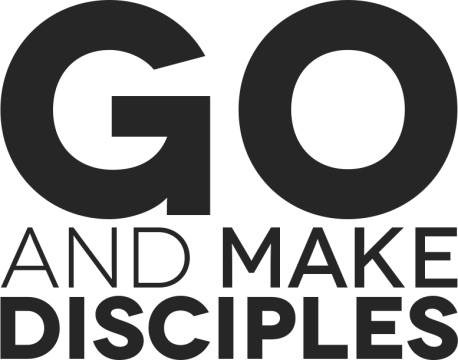Authority influences every part of life. The manner in which we respond to authority may differ, however, to deny that authority exists is to deny a biblical principle:
Every person is to be in subjection to the governing authorities. For there is no authority except from God, and those which exist are established by God. Therefore whoever resists authority has opposed the ordinance of God; and they who have opposed will receive condemnation upon themselves. – Romans 13:1-2
All authority is established by God. There are good authorities and evil authorities and there may be times when authorities need to be challenged and even rejected (Acts 4:18-19), however, God has established authority in this world to maintain order in the home, the nation, and everything in between. To completely reject the concept of authority is to reject God Himself.
God’s Authority – The Video!
Authority at Work
In my work experience throughout the years I have had opportunity to work for others who are in positions of management (authority) over me and to work in management positions as well. In one particular situation I was working as a manager and a situation arose where one of the workers disagreed with how I handled a certain situation. The other 8-10 workers were all in agreement with my decision, however, one woman staunchly opposed the way I handled the situation.
While I recognized this woman’s right to disagree with me I asked her to accept my decision in this case and to work as a team together with me and the others. I explained to this woman that as the manager I had the responsibility for everyone involved and I made the decision which I thought was best for our team as well as the clients whom we were serving. It was at this point that this woman said to me, “Daniel, there is no such thing as a manager. We are all equal in God’s eyes, therefore, I don’t have to listen to you or accept your decision.”
To be perfectly honest, I was absolutely stunned to hear someone actually speak these words and didn’t believe that someone could really think like this. In essence, this woman was stating that there is no such thing as authority and we are all equal in this regard. I disagreed with this woman and informed her that it is probably best is she never return again. I had a responsibility to fulfill and could not work with someone who does not acknowledge authority at some level.
How do you view authority?
The way in which we relate to authority often reflects our perspective of God. To deny authority is to deny an institution of God and in essence it is to deny God Himself. We see this principle clearly illustrated in this week’s Torah Portion. This week’s Torah Portion is called “קרח” – “Korach,” which is the name of a man who led a rebellion against Moses and Aaron.
Korach
We are introduced to Korach and his team of rebels in the first couple of verses of this week’s study:
Now Korach the son of Izhar, the son of Kohath, the son of Levi, with Dathan and Abiram, the sons of Eliab, and On the son of Peleth, sons of Reuben, took action, and they rose up before Moses, together with some of the sons of Israel, two hundred and fifty leaders of the congregation, chosen in the assembly, men of renown. – Num. 16:1-2
God has carefully chosen every word that is in the Bible and the information that is provided in His Word is usually there for a specific reason. Korach’s genealogy reveals that he was from the tribe of Levi, which makes him a Levite.
Korach’s Family Tree
Korach was not just any Levite but he was also a Kohathite. We read about the details of Korach’s lineage and his family tree in the book of Exodus:
- These are the names of the sons of Levi according to their generations: Gershon and Kohath and Merari; and the length of Levi’s life was one hundred and thirty-seven years. – Ex. 6:16
- The sons of Kohath: Amram and Izhar and Hebron and Uzziel; and the length of Kohath’s life was one hundred and thirty-three years. – Ex. 6:18
- Amram married his father’s sister Jochebed, and she bore him Aaron and Moses; and the length of Amram’s life was one hundred and thirty-seven years. – Ex. 6:20
- The sons of Izhar: Korach and Nepheg and Zichri. – Ex. 6:21
From these brief sketches of Korach’s family tree we discover that Korach, Moses, and Aaron had the same grandfather, Kohath. Korach’s father, Izhar, and Moses and Aaron’s father, Amram, were brothers. This makes Korach the cousin of Moses and Aaron. Korach was starting a family feud which was probably fueled by jealousy.
The others that joined Korach in rising up against Moses are listed as Dathan, Abiram, and On who were all sons of Reuben. Reuben was the oldest son of Israel, however, he lost his right of the firstborn when he defiled his father’s bed by sleeping with a concubine of his father (Gen. 35:22). Lastly there were 250 men of Israel who also joined Korach. These 250 men are called “…leaders of the congregation, chosen in the assembly, men of renown” (Num. 16:2).
Korach, Dathan, Abiram, On, and the 250 leaders of the people all rose up together against Moses. This was not some motley crew that was unemployed and looking for some excitement. Korach was a Levite from the family of the Kohathites, a respected family in the service of the Tabernacle. Dathan, Abiram, and On were all from the tribe of Reuben, the firstborn of Israel. And the 250 men were distinguished, chosen men of the assembly of Israel. These men represented the establishment of Israel and were highly respected. Together Korach and his team represented a significant and sophisticated affront to the man Moses.
Korach’s Accusation
Korach and his team united against Moses and Aaron and brought the following accusation:
They assembled together against Moses and Aaron, and said to them, “You have gone far enough, for all the congregation are holy, every one of them, and the LORD is in their midst; so why do you exalt yourselves above the assembly of the LORD?” – Num. 16:3
The accusation of Korach and his mob of distinguished followers was that Moses and Aaron had exalted themselves and placed themselves as leaders over the people: Moses as God’s prophet who led the people and Aaron who served as the high priest in the Tabernacle. The claim of Korach and his team was that everyone was equal and that there was no authority in the camp, except the LORD. This philosophy of Korach sounds spiritual but it is actually rebellious.
Moses’ Response
Moses did not give in to Korach’s false accusations nor did he back down from the certain position that God had called him to. Moses responded with the following actions and words:
When Moses heard this, he fell on his face; and he spoke to Korach and all his company, saying, “Tomorrow morning the LORD will show who is His, and who is holy, and will bring him near to Himself; even the one whom He will choose, He will bring near to Himself. – Num. 16:4-5
The humility of Moses and his complete dependence on the LORD is seen in the act of Moses falling on his face. Moses was now accustomed to handling complaints and accusations of the Israelites and he knew that his first defense is the LORD Himself. Moses then proclaimed to Korach and his followers that the LORD Himself would sort out this false accusation. Moses was resolute in his calling before the LORD and did not second guess his position of leadership.
Confidence in Calling
Moses was no longer the timid leader who was unsure of himself that we read about when God had first called Moses at the burning bush (Exodus 3). Moses had been walking with the LORD as the leader of Israel for at least a couple of years and he had become confident in his calling. Moses knew without a shadow of a doubt that the LORD was fully with him and had called him to lead the people of Israel at that time. Moses knew God’s voice and Moses knew the supernatural power of God to provide in any and every circumstance. Moses was firm in his calling and was unmoved by these false accusations against himself and Aaron.
What is God’s calling on your life?
Are you walking in God’s calling?
Are you confident in the position that God has placed you?
Knowing God
We are not all called to positions of leadership and authority, however, each one of us is called to serve God and others through the power of His Holy Spirit in the community of believers (1 Corinthians 12:1-11). Like Moses, we must be confident in our calling and be sure of the place of service that God has called us to.
I strongly believe that the confidence of Moses in this situation was a direct result of his intimate relationship with the LORD. Moses knew God intimately, had clearly heard God’s voice, and he knew without a shadow of a doubt that God had called him to lead. Knowing God and having confidence in one’s calling are intrinsically interwoven with one another.
Rejecting God’s Authority
Moses was so confident in his calling that he didn’t even flinch in the face of such harsh accusations which Korach and his followers brought against himself and Aaron. Moses also understood that if the LORD had so clearly placed himself and Aaron in their respective positions of leadership, Korach and his team were not simply rising up against them, they were actually rising up against the LORD:
Moses said, “By this you shall know that the LORD has sent me to do all these deeds; for this is not my doing. If these men die the death of all men or if they suffer the fate of all men, then the LORD has not sent me. But if the LORD brings about an entirely new thing and the ground opens its mouth and swallows them up with all that is theirs, and they descend alive into Sheol, then you will understand that these men have spurned the LORD.” – Num. 16:28-30
As soon as Moses finished speaking these words the ground opened up and swallowed all of those who had risen up against Moses. Fire also come forth from the LORD and consumed the 250 men with the censors (Num. 16:31-35).
Moses had asked the LORD to perform a wonder in their midst through the death of these men to show that the LORD had indeed sent him. Moses asked God to do an “entirely new thing” by having the ground open its mouth and swallow them up. The phrase “entirely new thing” in the Hebrew is “בריאה יברא” – “beriah yivrah” which literally means “creates a new creation.” The LORD “created a new thing” according to the request of Moses and the ground opened its mouth and swallowed up Korach and his followers.

The LORD had confirmed Moses as the leader of the Israelites and Aaron as the high priest. It was also made clear by the LORD’s judgement that Korach and his mob had not simply risen up against a man, Moses, but against the LORD Himself.
Spurning God’s Authority
Moses stated that if those men would die in a supernatural way in which he prescribed then they would understand that, “…these men have spurned the LORD” (Num. 16:30). The word “spurn” used to describe the action of Korach and his followers against the LORD is the Hebrew word “נאץ” – “na’atz,” which can mean “to spurn, despise, abhor, provoke, or blaspheme.” Moses rightly defined Korach’s rising up against him as a “spurning” of the LORD.
We see this same Hebrew word “נאץ” – “na’atz” used in last week’s Torah Portion when the children of Israel rejected the good plan of God and sided with the ten spies. The LORD’s reaction to their obstinacy was as follows:
The LORD said to Moses, “How long will this people spurn Me? And how long will they not believe in Me, despite all the signs which I have performed in their midst? – Num. 14:11
The actions and words of the people were used to spurn the LORD and showed their disbelief in God, despite all of the miracles which God had performed in their midst. God’s authority and power were continually displayed among the people but they continually rejected Him.
Reverencing Authority
There is a powerful lesson for all of us in this week’s study in regard to authority. Each one of us must have a foundational respect for the authorities which are established in our respective communities. There is a blessing in obeying authority and certain condemnation for those who reject authority and lives as they wish. It is also vital for us to understand the spiritual authority of God on this earth. We see this powerfully illustrated through the life of Yeshua.
The Authority of Yeshua
When Yeshua walked this earth He walked in the full authority of the Father in heaven who had sent Him, however, there were some who did not believe in Him and questioned the source of His authority:
When He entered the temple, the chief priests and the elders of the people came to Him while He was teaching, and said, “By what authority are You doing these things, and who gave You this authority?” – Matt. 21:23
Just as Korach and the leaders of his day rejected Moses, many of the Jewish leaders of Yeshua’s day rejected Him. They failed to understand the source of the authority which was clearly displayed in Yeshua’s life.
The day before Yeshua’s authority was questioned by the chief priests and elders, Yeshua had entered the Temple area and He had turned over the tables of those who were buying and selling in that place (Matt. 21:12). Yeshua cleaned the house of His Father and quoted from the prophets to support His actions:
And He said to them, “It is written, ‘My house shall be called a house of prayer’; but you are making it a robbers’ den.” – Matt. 21:13
We then read how the blind and the lame came to Yeshua and He healed them (Matt. 21:14). The blind and the lame recognized that the authority of Yeshua was from heaven. They submitted to His authority and were healed. Children were also crying out and declaring “Hosanna to the Son of David” (Matt. 21:15).
Yeshua walked in absolute authority in all that the Father gave Him on earth. He showed His power in the Temple, over physical disabilities, and over nature itself (Matt. 21:18-22). Almost everyone who heard what Yeshua said and saw what Yeshua did praised God and recognized that this must be the authority of God in His life, however, some of the religious leaders failed to recognize God’s authority (Matt. 21:15-17).
The Authority of Men & The Authority of God
There is a natural order of life in this world and we need to submit to the authorities which God has ordained: parents, teachers, governors, kings, military, police, etc… To ignore or reject authority invites chaos into one’s life and brings condemnation from God Himself (Romans 13:1-2). This was vividly portrayed in the life of Korach and those who followed after him in rebellion.

The Authority of Yeshua
Beyond the natural order of authority to govern the everyday affairs of life there is also spiritual authority. There are various elements to spiritual authority that work themselves out in the body of believers today, however at this time, I only want to focus on the foundation which Yeshua established His spiritual authority:
And Yeshua came up and spoke to them, saying, “All authority has been given to Me in heaven and on earth. Go therefore and make disciples of all the nations, baptizing them in the name of the Father and the Son and the Holy Spirit, teaching them to observe all that I commanded you; and lo, I am with you always, even to the end of the age.” – Matt. 28:18-20
This “Great Commission” which Yeshua proclaimed to His first disciples was based on the complete and total authority which had been granted to Him.
Yeshua received His authority from the Father in heaven (John 17:2) and by this authority Yeshua commissioned His disciples to make disciples of all nations, to baptize them, and to teach them all of His commands. It is this same spiritual authority of Yeshua that all believers in Yeshua are to continue to exercise today.
Are you exercising the authority of Yeshua in making disciples?
I truly believe that the manner in which we live our lives and make disciples is a direct result of how we know and understand the authority of Yeshua. Yeshua has commissioned us to go forward in His authority and change this world as partners with Him. We must understand the authority of Yeshua in our individual lives in order to be effective in making disciples. Go and make disciples of all nations with the full knowledge that Yeshua has received all authority in heaven and on earth!

Shabbat Shalom!
If you enjoyed reading this article, share it today with friends! We also invite you to sign up for our weekly Torah Portion commentary on the sidebar to the right.
Help keep our weekly commentaries free and available to all. Click here to donate today:
Torah Portion: Num. 16:1 – Num. 18:32
Hafatara: 1 Samuel 11:14 – 1 Samuel 12:22
Return to Torah Portion Homepage
Copyright Jewels of Judaism. All rights reserved 2016




Blessings on your group Daniel, thanks for your welcome last week, I am at last home in golden bay, NZ Richard . ps Have you been into the Christchurch anglican church complex nr Jaffa gate in the old city? there is a mighty work in Yeshuah there among Jews and many from the nations coming …
Hi Richard,
It was good to meet you face to face. Yes, I have been to Christ Church and have a few friends who work there.
Glad to hear that you made it home safely. I hope to visit you one day in New Zealand.
Blessings,
Daniel
Shabbat Shalom Daniel. Thank you for this week’s teaching for I learned from numbers 16:28-35 about the intimacy of Moses with our Heavenly Father. His confidence and authority and what he spoke came to pass due to his relationship with God. Everything has already been provided to us through Yeshua.
Blessings.
Excellent! Thanks for sharing Cindy.
Daniel
Dear Daniel,
Thank you for these words to explain Gods order in authority. It reveals the need to pray to God for our leaders, in church, of schools, in community, our country and this world.
God bless you and give you more and more of His Wisdom.
Shabbat Shaloom
AJ
Amen! Good point AJ!
Shabbat Shalom,
Daniel